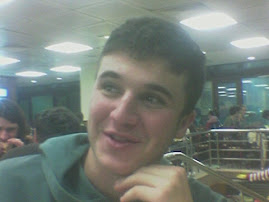
Abraham Maslow was an American psychologist.He found the “hierarchy of human needs” and he is the father of humanistic psychology.Maslow’s the most important contribution to psychology is ”Hierarchy of needs”.Before this study he studied on monkeys.According to Maslow, after the breathe the most important need is thirst. Hunger is less important than thirst and sex is the least important need between basic ones.Then he started to compare all needs. He saw that instinctive needs are more powerful than others.His study is shown on a pyramid.
Psychological needs: These include oxygen, water, protein, salt, sugar, calcium, and other minerals and vitamins at first because people can not be alive without them.Also pH and temperature is very important to live.Moreover , people need to sleep ,rest other instinctive needs.
The safety and security needs: Human being starts to look for safety places and circumstances after he/she found the first conditions above.The fear and anxiety starts to appear at this step.
The love and belonging needs :When people found psychological needs and safety need, they start to look for friends, love, children.However if we look at this step negatively loneliness and social anxieties can increase at this step
The esteem needs: According to Maslow, there are two types of esteem needs,the lower one and higher one.The lower one is the need of respect of others.But the higher one is more important because it includes the self esteem, indipendence and freedom.
Self-actualization:It includes morality, creativity, spontaneity, problem solving, lack of prejudice, acceptance of facts.Maslow did a research for self-actualization.He looked a group of people’s biographys, writings, acts which include Abraham Lincoln, Thomas Jefferson, Albert Einstein, Eleanor Roosevelt, Jane Adams, William James, Albert Schweitzer, Benedict Spinoza, and Alduous Huxley.Then he developed a list of qualities that seemed characteristic of these people.He saw that these people were reality-centered,which means they can differentiate fake and genuine.They were also problem-centered .According to them the journey is more important than end.Democratic and ethical values also arise at this step
According to Maslow a self-actualizer, who wants to be happy, needs to follow these;
Truth, rather than dishonesty
Goodness, rather than evil
Unity, wholeness, and transcendence of opposites, not arbitrariness or forced choices.
Aliveness, not deadness or the mechanization of life
Uniqueness, not bland uniformity.
Perfection and necessity, not sloppiness, inconsistency, or accident.
Completion, rather than incompleteness.
Justice and order, not injustice and lawlessness.
Simplicity, not unnecessary complexity.
Richness, not environmental impoverishment
Effortlessness, not strain.
Playfulness, not grim, humorless, drudgery
Self-sufficiency, not dependency.
Meaningfulness, rather than senselessness.
Maslow’s theory is a very important theory for many areas of life.It showed us the order of presedence clearly.Therefore it influenced production, sell, finance and many other areas of business life.He died in a heart attack in 1970.
Quatations from Abraham Maslow
If the only tool you have is a hammer, you tend to see every problem as a nail.
The story of the human race is the story of men and women selling themselves short.
The ability to be in the present moment is a major component of mental wellness.
A musician must make music, an artist must paint, a poet must write, if he is to be ultimately at peace with himself.
References






.jpg)